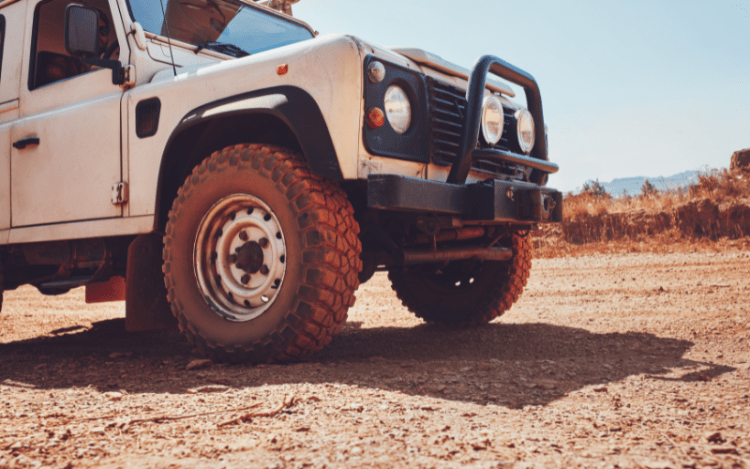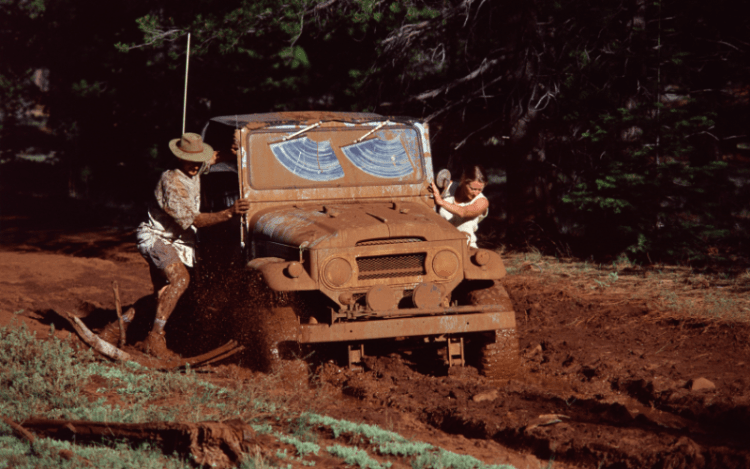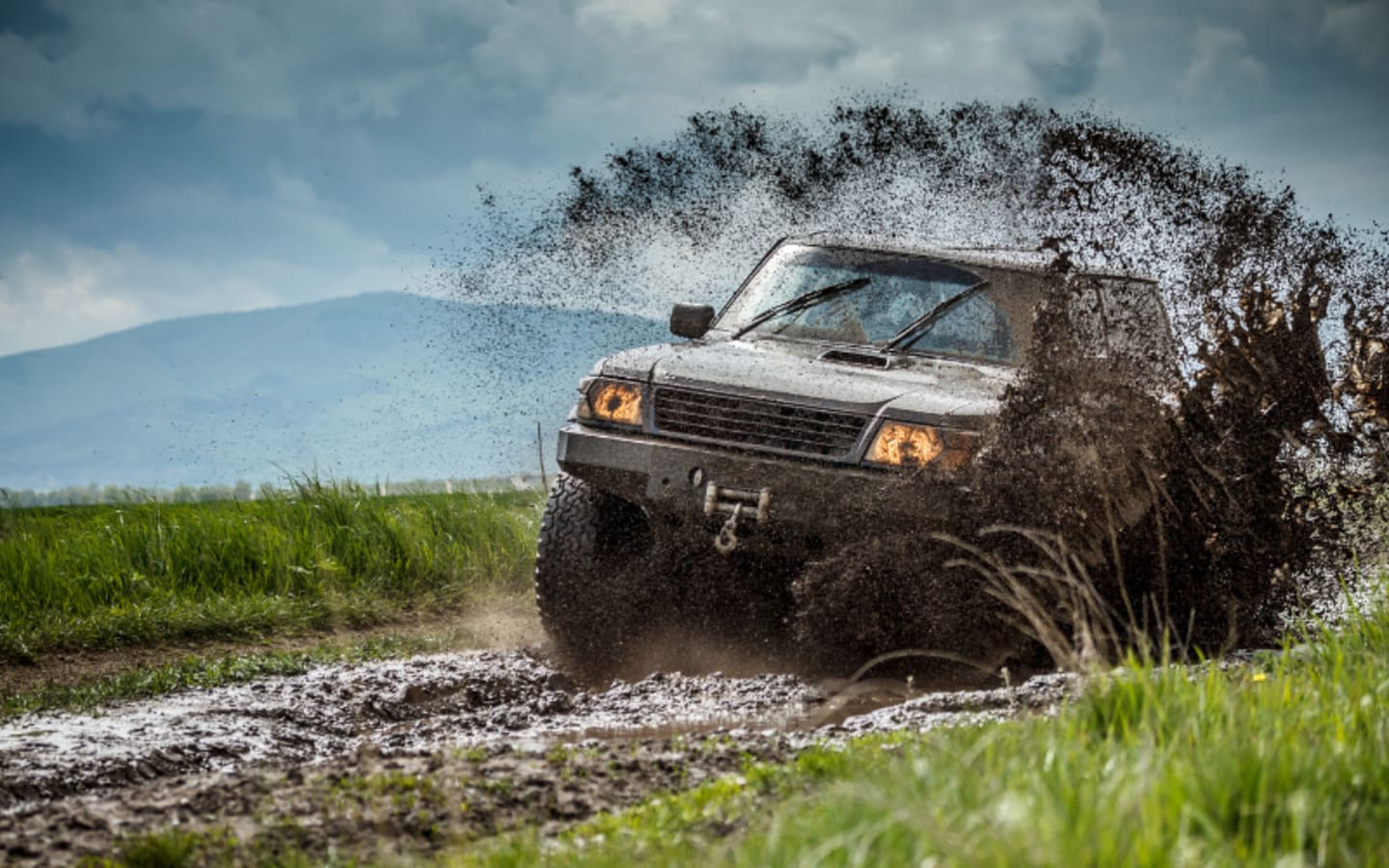Exploring rough terrain, putting your driving prowess to the test, and getting in touch with nature are all made possible by off-roading. Going off the usual route, however, has its own hazards and difficulties. Putting safety first is essential to guaranteeing a fun and incident-free trip, regardless of your level of experience off-roading or your level of inexperience. Before hitting the trails, every motorist should be aware of these crucial off-roading safety precautions.
1. Know Your Vehicle Inside and Out

Image credit: Gentleman's Pursuits/Canva
Spend some time learning about your vehicle's capabilities before attempting muddy terrain or rocky hills. For information on things like ground clearance, towing capacity, and four-wheel-drive features, consult the owner's handbook. If your rig has lock differentials or low-range gears, learn how to engage them. You may also get a sense of how your car responds to rough terrain by taking a brief test drive in a public, safe location. Understanding your machine's limitations might help you avoid malfunctions or hazardous situations in the outdoors.
2. Plan Your Route Ahead of Time

Image credit: Gentleman's Pursuits/Canva
Although spontaneity may seem exciting, it is always a recipe for disaster to venture into uncharted terrain without a strategy. Examine the trail's complexity, the weather, and any permission requirements before heading off-road. Because cell service might be poor in rural regions, use a GPS device or a trustworthy off-road app, and always have a physical map on hand as a backup. In order for someone to notify assistance if necessary, let them know your itinerary and anticipated return time.
3. Pack Essential Gear

Image credit: Gentleman's Pursuits/Canva
Your best line of protection against unforeseen setbacks is preparation. Stock up on rescue equipment, such as shackles, a winch, and a tow strap, in case your car gets trapped. Pack a multi-tool for last-minute repairs, non-perishable snacks, water, and a first-aid kit. Since punctures are frequent over uneven terrain, a spare tire, jack, and tire repair kit are essential. Additionally, bring a flashlight and warm clothes because the weather can change quickly and you don't want to be caught off guard after dark.
4. Inspect Your Vehicle Before Departure
You can avoid a lot of pain by doing a pre-trip examination. Off-road, grip is crucial, so check your tires for adequate pressure and tread depth. Make sure your batteries, brakes, and fluids are in good condition by testing them. Avoid ignoring the undercarriage because loose or low-hanging portions may catch on roots or pebbles. By identifying problems early, you can avoid being trapped with a broken ride far from civilization.
5. Drive Smart, Not Fast
The key to off-roading is control, not speed. When navigating difficulties like stones, steep inclines, or river crossings, maintain a calm and steady pace. To improve steering accuracy, use both hands on the wheel. Steer clear of abrupt jerks that can harm your suspension or divert you from your intended path. It's safer to venture out and scout a challenging stretch on foot first if you're not confident about it.
6. Travel With a Buddy
Traveling alone can seem daring, but it's dangerous. If you need a tow or someone to come get you, having a second car can be invaluable. Additionally, problem-solving is made easier and the fun is doubled when a friend is present. Purchase a satellite communicator if you have to travel alone in order to maintain communication in places without cell service.
7. Respect the Environment
Off-roading is about protecting the earth for future generations, not just about you. To prevent destroying wildlife habitats or plants, stay on authorized pathways. Don't leave any rubbish behind; if you pack it in, pack it out. If conditions appear risky, think about delaying your journey because muddy or wet routes are prone to erosion. Driving responsibly preserves the environment and guarantees that paths remain open for more exploration.
8. Learn Basic Recovery Techniques

Image credit: Gentleman's Pursuits/Canva
Even the best drivers get trapped, so be prepared to figure out how to get out of it. Learn how to use your recovery equipment safely because improper winching or towing might cause harm to others or damage your car. Remove any sand or dirt from beneath your tires, and if necessary, add branches or rocks for additional traction. A little issue won't become a big headache if you have patience and keep your cool.
9. Stay Sober and Alert
When navigating difficult terrain, mental clarity is essential. Drugs and alcohol impair judgment and reflexes, endangering both you and other people. Take breaks if you're feeling exhausted because fatigue can be just as harmful. Off-roading requires concentration, so stay alert throughout the entire process.
10. Prepare for Emergencies
Despite the finest preparation, things can go wrong. Know basic first-aid techniques for cuts, scrapes, and more, and keep a fire extinguisher on hand in case of engine accidents. A satellite phone or CB radio might let you communicate if you're distant from assistance. Remain composed, evaluate the circumstances, and put safety before hastening to return to the trail.
Final Thoughts
Although off-roading provides a certain kind of freedom and pleasure, there are risks involved. With the correct information, equipment, and attitude, you can confidently tackle any path. The best off-road adventures are the ones you return from with a smile, so prioritize safety, show consideration for the environment, and have fun.





